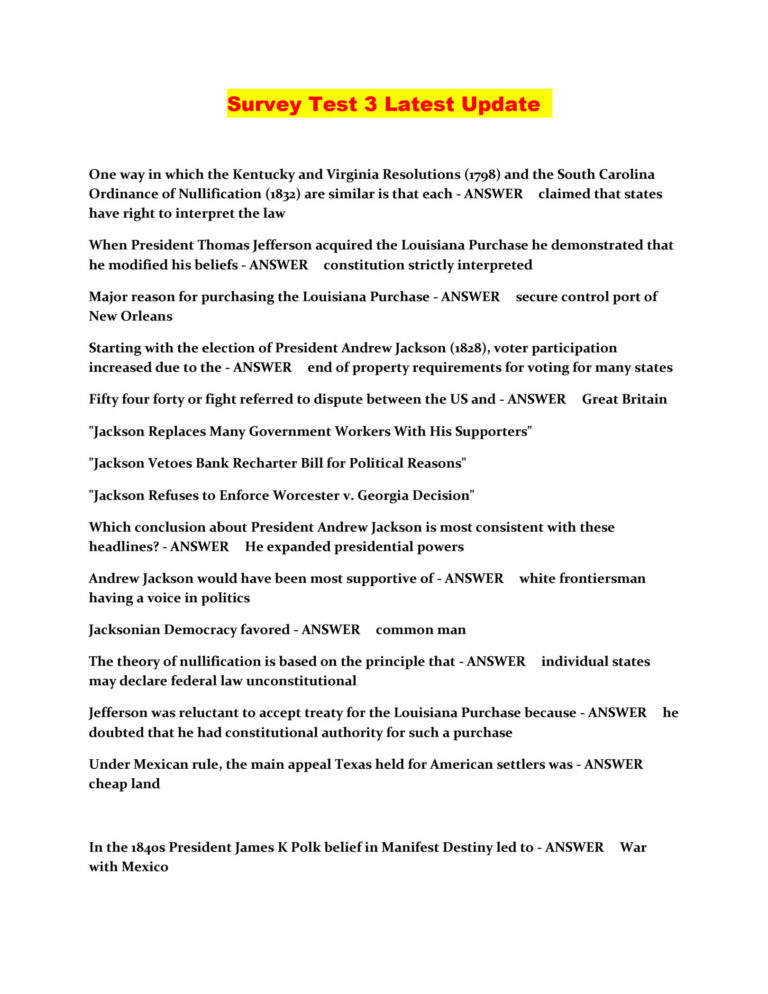Define Manifest in the Bible
In the Bible, the term “manifest” refers to the act of making something visible or known. It is often used to describe the revelation of God’s will or presence.
The concept of manifesting in the Bible emphasizes the idea of making something clear and evident to people. Manifestation in the Bible is a crucial aspect of faith and spirituality. It involves the tangible expression of divine power and purpose.
Throughout the scriptures, various events and miracles serve as manifestations of God’s sovereignty and love for humanity. Understanding the significance of manifest in the Bible can deepen one’s spiritual connection and provide insight into the divine plan. As believers seek to comprehend and experience the manifestations of God, they are encouraged to trust in His unfailing promises and providence.
Origins Of Manifest In The Bible
In the Bible, the concept of manifest has deep roots that can be traced back to ancient times. Understanding the origins of manifest in the Bible provides insight into its significance in biblical teachings.
Etymology Of Manifest
The word manifest originates from the Latin word “manifestus,” meaning “clear” or “evident.” In biblical context, manifest signifies the clear revelation or display of divine power and presence.
Manifestation In Biblical Context
In the Bible, manifestation refers to the visible display of God’s power or will. Through miraculous events, prophecies, and divine interventions, God’s manifestation is evident throughout biblical stories.

Credit: slideplayer.com
Key Biblical References
The concept of manifestation in the Bible is deeply rooted in the idea of God’s presence and power being revealed to humanity in various ways. Throughout the scriptures, there are key references that highlight the manifestation of God’s power and will.
Manifestation Of God’s Power
One of the central themes in the Bible is the manifestation of God’s power. The Old Testament, in particular, is filled with accounts of divine intervention and supernatural demonstrations of God’s might. From the parting of the Red Sea to the destruction of Jericho’s walls, these events serve as powerful manifestations of God’s omnipotence.
Manifestation Of God’s Will
Another important aspect of manifestation in the Bible is the revelation of God’s will. This is often conveyed through the words and actions of prophets and other chosen vessels. The teachings of Jesus Christ also serve as a profound manifestation of God’s will for humanity, emphasizing love, mercy, and righteousness.
Interpretations And Symbolism
The concept of manifest in the Bible has been interpreted in various ways. Manifestation refers to the act of making something visible or known. In the Bible, manifest is used to describe the revelation of God’s presence or will in the world. It is also used to describe the prophetic signs that were given to the people of Israel. The symbolism of manifest is an important concept in Christianity, and it has been studied and analyzed extensively by theologians over the years.
Manifestation As Divine Revelation
Manifestation as divine revelation is one of the most common interpretations of the concept of manifest in the Bible. This interpretation refers to the ways in which God reveals himself to humanity. In the Old Testament, God revealed himself to the Israelites through various means, such as dreams, visions, and theophanies. In the New Testament, God revealed himself through the person of Jesus Christ, who is considered the ultimate manifestation of God’s love and grace.
The manifestation of God’s presence is often associated with light. For example, the burning bush that Moses encountered in the desert was described as being on fire but not consumed. This symbolized God’s presence and power. Similarly, the transfiguration of Jesus on the mountaintop was accompanied by a bright light, which symbolized his divine nature.
Manifestation As Prophetic Sign
Another interpretation of manifest in the Bible is as a prophetic sign. In the Old Testament, God often used signs and wonders to communicate his message to the people of Israel. For example, the plagues that were sent upon Egypt during the time of Moses were seen as signs of God’s power and judgment.
The manifestation of prophetic signs was also associated with the coming of the Messiah. The prophet Isaiah spoke of a time when a virgin would conceive and give birth to a son, who would be called Immanuel. This was seen as a sign of the coming of the Messiah, who would bring salvation to the people of Israel.
In conclusion, the concept of manifest in the Bible has been interpreted in various ways, but its symbolism remains an important aspect of Christian theology. Whether it is seen as a divine revelation or a prophetic sign, manifest is a reminder of God’s presence and power in the world.
Manifestation In New Testament
Manifestation in the New Testament refers to the visible or tangible expression of divine power or presence. In the context of the Bible, manifestation signifies the revelation of God’s glory, miracles, and spiritual gifts. The New Testament abounds with instances of manifestation, showcasing the power and presence of God among His people.
Manifestation Of Jesus’s Miracles
Jesus’s miracles are a prominent manifestation in the New Testament. These miraculous acts, such as turning water into wine, healing the sick, and raising the dead, served as tangible demonstrations of God’s power and compassion. The Gospel accounts vividly portray how Jesus’s miracles manifested the divine authority and brought about transformation in people’s lives.
Manifestation Of Spiritual Gifts
Spiritual gifts are another significant aspect of manifestation in the New Testament. The apostles and early Christians were empowered with diverse spiritual gifts, including prophecy, healing, and speaking in tongues. These manifestations of spiritual gifts were instrumental in building and edifying the early church, as they testified to the presence and work of the Holy Spirit among believers.
Historical Perspectives
Early Christian Views On Manifestation
The early Christian views on manifestation in the Bible were centered around the concept of God’s presence and power being revealed to humanity. The idea of divine manifestation was fundamental to the early Christian faith, as it emphasized the tangible and visible evidence of God’s existence and involvement in the world. Early Christians believed that God’s manifestations served as a means of communication with humanity, providing guidance, reassurance, and divine intervention in times of need.
Evolution Of Manifestation Theology
Over time, the theology of manifestation evolved within Christianity, incorporating various interpretations and perspectives. The concept of manifestation expanded to encompass not only the physical appearances of God but also the spiritual and transformative manifestations within individuals and communities. This evolution in theology led to a deeper understanding of God’s continuous presence and influence in the lives of believers, inspiring spiritual growth, and personal transformation.

Credit: www.etsy.com
Comparative Analysis
Manifest in the Bible is defined through a comparative analysis of various scriptures. By examining different passages and interpretations, one can gain a deeper understanding of this concept within the context of biblical teachings. This approach allows for a comprehensive exploration of the meaning and significance of ‘Manifest’ in the Bible.
Comparative Analysis Manifestation is a term that is used in different religious traditions to refer to the appearance or revelation of a divine being or power. In Christianity, manifestation refers to the ways in which God reveals himself to human beings. This can take many forms, including visions, dreams, and other mystical experiences. In this section, we will explore the concept of manifestation in different religious traditions and contemporary Christian practices. Manifestation in Different Religious Traditions The concept of manifestation is not unique to Christianity. In fact, many other religious traditions have similar beliefs about the appearance or revelation of divine beings or powers. For example: – Hinduism: In Hinduism, manifestation refers to the appearance of a deity or god in physical form. This can take the form of an avatar or incarnation, such as the god Vishnu appearing on earth as the Buddha. – Buddhism: In Buddhism, manifestation refers to the appearance of a buddha or enlightened being. This can take the form of a physical manifestation, such as a statue or image, or a mental manifestation, such as a vision or dream. – Islam: In Islam, manifestation refers to the ways in which God reveals himself to human beings. This can take many forms, including dreams, visions, and other mystical experiences. Manifestation in Contemporary Christian Practices In contemporary Christian practices, manifestation is often associated with the gifts of the Holy Spirit. These gifts are believed to be given to believers by the Holy Spirit and include things like prophecy, healing, and speaking in tongues. The manifestation of these gifts is seen as evidence of the presence and power of the Holy Spirit in the life of the believer. In addition to the gifts of the Holy Spirit, manifestation is also associated with prayer and worship. Many Christians believe that God can reveal himself in a powerful way during times of prayer and worship, and that this can lead to a deeper understanding of God’s will and purpose for their lives. Conclusion The concept of manifestation is an important part of many religious traditions, including Christianity. Whether through visions, dreams, or other mystical experiences, the manifestation of divine beings or powers is seen as evidence of the presence and power of God in the world. By exploring the concept of manifestation in different religious traditions and contemporary Christian practices, we can gain a deeper understanding of the ways in which God reveals himself to human beings.Controversies And Debates
The concept of manifest in the Bible has sparked various controversies and debates throughout history. Interpretive disagreements and modern challenges to manifestation beliefs have led to extensive discussions and differing viewpoints within the Christian community.
Interpretive Disagreements
Interpretations of the concept of manifest in the Bible have been a subject of disagreement among theologians and scholars. Some argue that manifestation refers to the tangible demonstration of God’s power and presence, while others view it as a spiritual revelation or an act of divine intervention. These differing interpretations have given rise to theological debates and diverse doctrinal perspectives within Christian theology.
Modern Challenges To Manifestation Beliefs
In contemporary times, the concept of manifestation in the Bible has encountered challenges from secular worldviews and skepticism. The rise of scientific rationalism and materialistic ideologies has led to questioning the authenticity and relevance of manifestation beliefs in the modern context. Additionally, the emergence of alternative spiritual practices and New Age movements has contributed to a reevaluation of traditional biblical interpretations of manifestation.

Credit: www.patheos.com
Conclusion And Relevance Today
Manifest in the Bible is defined as a clear revelation or display of divine power and purpose. Its relevance today lies in understanding how God’s presence and will are made evident in our lives. By exploring biblical manifestations, we can deepen our faith and connection to the divine.
Impact Of Manifestation On Christian Faith
Application Of Manifestation In Personal Spiritual Growth
The concept of manifestation in the Bible holds significant relevance in today’s world. Understanding the concept of manifesting in the biblical context provides insight into the power of faith and belief. Manifestation in the Bible emphasizes the importance of aligning one’s thoughts and actions with God’s will. This alignment leads to the realization of divine promises and blessings. Impact of Manifestation on Christian Faith: – Manifestation reinforces the importance of faith in Christianity. – It highlights the role of belief in bringing God’s promises to fruition. – Manifestation strengthens the bond between individuals and God through trust. Application of Manifestation in Personal Spiritual Growth: – By manifesting biblical principles, individuals can experience spiritual growth. – Practicing manifestation fosters a deeper connection with God. – Applying manifestation in personal life leads to a more fulfilling spiritual journey. In conclusion, the concept of manifestation in the Bible continues to influence Christian faith and personal spiritual growth in modern times.Conclusion
Understanding the biblical concept of manifest empowers us to live with faith and purpose. Let’s embrace the divine guidance that manifests in our lives, leading us towards spiritual growth and fulfillment. May we continue to seek clarity and wisdom in our journey of faith.




